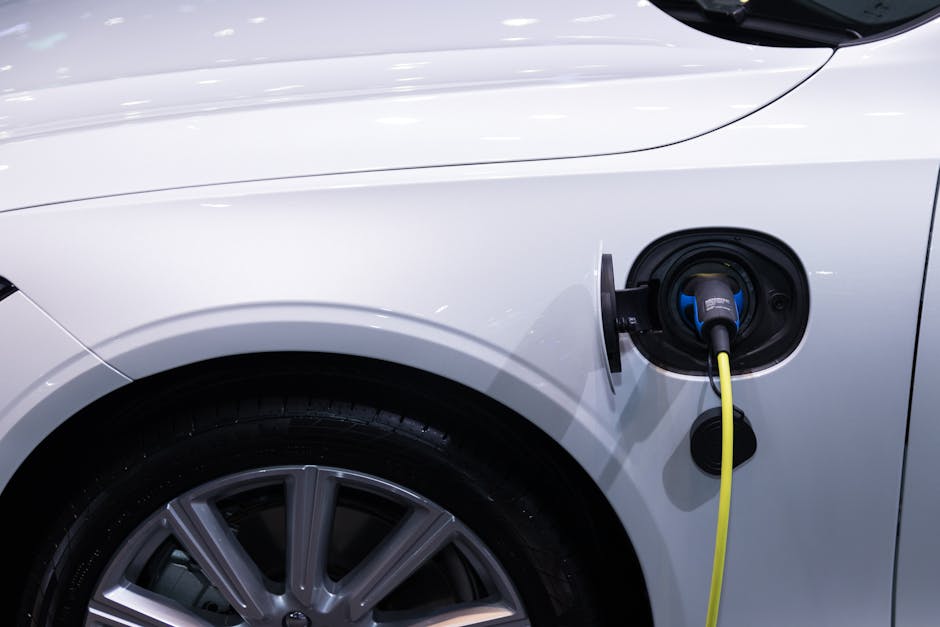
Electric Commute Cost Analysis: Savings Over Time
Introduction to Electric Commute
Electric cars are becoming a popular choice for commuting. The switch from traditional gasoline vehicles to electric ones can lead to significant savings over time. The initial cost of purchasing an electric vehicle may be higher, however, the long-term benefits can outweigh the upfront investment.
Cost Comparison: Electric vs. Traditional Commuting
Electric commuting can save you money compared to traditional commuting in the long run. Electric vehicles tend to have lower maintenance costs and are cheaper to fuel than traditional gas-powered vehicles. The initial cost of purchasing an electric vehicle may be higher, but you can recoup those costs over time through savings on fuel and maintenance. Charging an electric vehicle at home is typically more cost-effective than filling up a gas tank at the pump. The total cost of ownership for an electric vehicle is usually lower when considering factors like fuel, maintenance, and potential tax incentives.
Initial Investment in an Electric Commute
When considering an electric commute, it’s important to factor in the initial investment required. The cost of purchasing an electric vehicle can vary depending on the model and brand you choose. On average, electric cars can range from \(30,000 to \)40,000 for newer models. Keep in mind that some governments offer incentives to encourage the purchase of electric vehicles, which can help offset the initial cost. Additionally, you may need to install a charging station at your home, which can cost around \(500 to \)1,500. Researching available incentives and comparing prices from different manufacturers can help you make a well-informed decision before your electric commute begins.
Long-Term Savings with Electric Commute
Electric cars can save you money in the long run due to lower maintenance and fuel costs. According to estimates, electric vehicles can cost about \(500 to \)700 annually for electricity, compared to around $1,000 for gasoline-powered cars. Over time, this difference can add up significantly, leading to substantial savings. Additionally, electric cars generally require less maintenance, reducing ongoing expenses further.
Factors Affecting Cost Analysis
When analyzing the cost of commuting with an electric vehicle, several factors come into play that can impact your overall expenses. These factors include the initial cost of purchasing the electric vehicle, the cost of electricity in your area, the distance you travel daily, and the availability of charging stations along your commute route. Maintenance costs for electric vehicles are generally lower compared to traditional gasoline-powered vehicles, contributing to long-term savings. Battery life and warranty coverage are also crucial factors to consider, as they can affect your ongoing expenses.
Tax Incentives and Rebates for Electric Commute
You can save money on taxes and get rebates if you go electric with your commute. The government often offers incentives to promote the use of electric vehicles. These incentives can include tax credits, rebates, or other financial benefits that lower the overall cost of owning an electric vehicle. Be sure to check with your local government or utility companies to see what incentives are available in your area. Going electric might not only save you money on gas but also on taxes and other costs associated with traditional vehicles.
Maintenance and Operational Costs Breakdown
When considering the costs of electric commuting, it’s essential to break down the maintenance and operational expenses. Here are some key points to understand the breakdown:
- Electric vehicles generally have lower maintenance costs compared to traditional cars due to fewer moving parts.
- Savings can be seen in reduced expenses for oil changes, brake pad replacements, and other routine maintenance tasks.
- Operational costs for electric vehicles are typically lower due to cheaper electricity prices compared to gasoline.
- Charging your electric vehicle at home can further contribute to long-term savings, offsetting the initial purchase cost.
Analyzing Energy Consumption and Charging Costs
Charging an electric vehicle’s battery costs less than fueling a gas-powered car. The energy consumption of an electric vehicle depends on how far you drive, your vehicle’s efficiency, and your driving habits. The cost of charging an electric car varies based on electricity prices in your area and the size of your car’s battery. Analyzing your energy consumption and charging costs can help you understand the savings of an electric commute over time.
Environmental Impact of Electric Commuting
Electric commuting reduces greenhouse gas emissions because electric vehicles do not emit harmful gases like traditional cars. By choosing to commute electrically, you contribute to cleaner air and a healthier environment. Electric vehicles produce zero tailpipe emissions, which helps in the reduction of air pollution. Additionally, relying on electricity as a fuel source for commuting lessens the dependence on fossil fuels, leading to a more sustainable way of transportation.
Conclusion: Sustainable and Economical Future with Electric Commute
Electric commuting offers a sustainable and economical future. Over time, the savings from using electric vehicles can add up significantly. By lowering fuel and maintenance costs, electric commuting proves to be a practical and eco-friendly choice.



Leave a comment